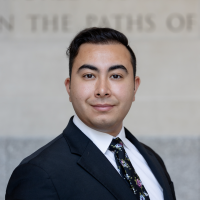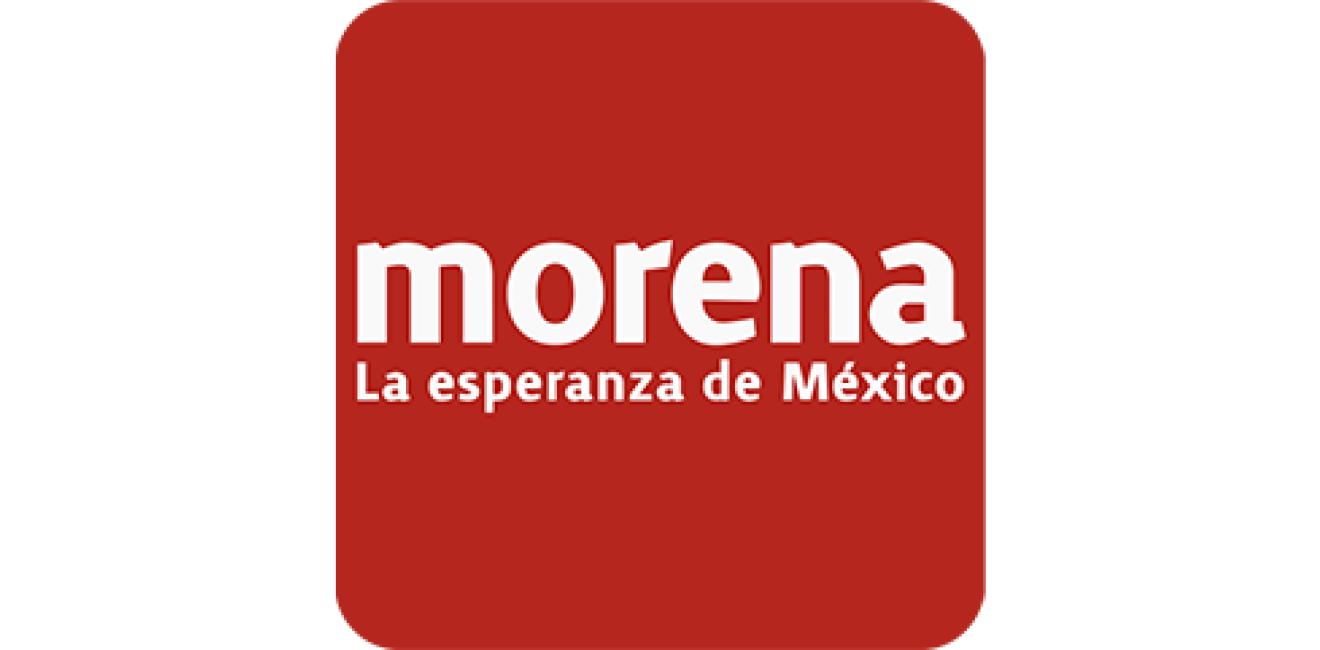Morena, Movimiento de Regeneración Nacional (National Regeneration Movement), was created in 2014 as Andrés Manuel López Obrador (AMLO) led an exodus of politicians from across the entire political spectrum into a new political party. Morena favors an anti-corruption agenda, supports energy nationalism, and defends policies traditionally associated with a harder left-wing party (i.e., supportive of labor unions and strong opposition to the liberalization of the energy market) without necessarily embracing the more socially liberal positions of its center-left predecessor, the PRD (i.e., same-sex marriage, abortion, women’s rights, etc.). The party is known for its staunch support of economic austerity, nationalism, and the welfare state.
Despite being Mexico’s new catch-all party, Morena’s agenda is closely linked to AMLO’s ideology and personal values. Not only does AMLO continue to be the party’s dominant figure, but his political power has boosted the support that several Morena gubernatorial candidates received when running for competitive positions, such as Mexico City’s Head of Government.
In 2018, Morena won almost all the races in which it competed. The "maroon" tsunami spearheaded by AMLO won the presidency, the majority in both chambers of Congress, four out of the nine governorships for grabs (including Mexico City), a majority in 19 out of the 32 state legislatures, as well as dozens of mayoralties in many states. President Andrés Manuel López Obrador has consistently maintained a 60% approval rate, positioning MORENA as a strong contender in the 2024 electoral process. Currently, Morena holds 46.4% of the seats in the Senate (58 senators in total), 50.4% of the seats in the Chamber of Deputies (252 positions in total), and 21 out of 32 governorships (Baja California, Baja California Sur, Campeche, Chiapas, Colima, Guerrero, Hidalgo, the State of Mexico, Michoacán, Morelos, Nayarit, Oaxaca, Puebla, Quintana Roo, Sinaloa, Sonora, Tabasco, Tamaulipas, Tlaxcala, Veracruz, Zacatecas), and Mexico City. Former Head of Government of Mexico City, Dr. Claudia Sheinbaum, leads the polls for the country’s presidential race, which could make her the first woman to serve as president in Mexico’s history.
Authors



Mexico Institute
The Mexico Institute seeks to improve understanding, communication, and cooperation between Mexico and the United States by promoting original research, encouraging public discussion, and proposing policy options for enhancing the bilateral relationship. A binational Advisory Board, chaired by Luis Téllez and Earl Anthony Wayne, oversees the work of the Mexico Institute. Read more

Explore More
Browse Insights & Analysis
Greenland’s New Governing Coalition Signals Consensus

The Future of France's Far-Right Party

Ukrainian Issue in Polish Elections



